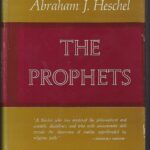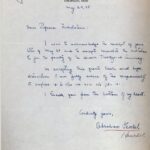Itay Seith
Justice is the balance between created and creator!
Chemist
Bradenton, FL
A Jewish (Reform) Perspective
How did you first encounter Abraham Joshua Heschel’s work?
At 18, I was given the book G-d In Search of Man. Its intro shocked me with glee…I had never imagined the Creator was seeking the created in need.
That book stole my attention, leading to college where I shocked my advisor, professor and college: I demanded credit through independent study. My college/advisor’s directive: if you want to credit for those areas, you must submit a proposal with the goals of course, the books/sources, and how I should be tested. In 1990-95 at Appalachian State University, I sent letters to: Duke University, Davidson College, Yale University, & Princeton requesting their class syllabi in: Hebrew Language, Maimonides (Guide for the Perplexed), ibn Rushd (The Incoherence of the Incoherence), Plato and Aristotle! It resulted in four college courses (three 1-semester hour + 1 Senior stud) I respected Heschel the most!
How did Heschel influence your life, thinking, and/or work? What of Heschel lives in you?
The wonder of nature: both as a scientific study and the complexity of the mind. My life was changed after college…I had discord as a gay man in American society, I became a chemist for the local government, then worked on a federal study in the isolation of woods with water animals, living Walden Pond wonder. Prayer has been a beauty – mind the creator and pleading from the created! Nothing else covers life, Lord, love, and respect but Prayer!
I still seek Justice, that sacred call of Judaism. Justice is the balance between created and creator! This is Heschel’s paradigm shift in G-d In Search of Man. The Torah is filled with examples of Love from the Lord AND doesn’t explain why the “Israelites” receive Love. Heschel says this Love from the Lord is necessary not merely a gift. Justice is the foundation of our Western Society–the legal system, the Constitution of the USA– it is a requirement of Humanity to fulfill the goals from the Lord. Israelite teachings/ethics are the foundation of society!

